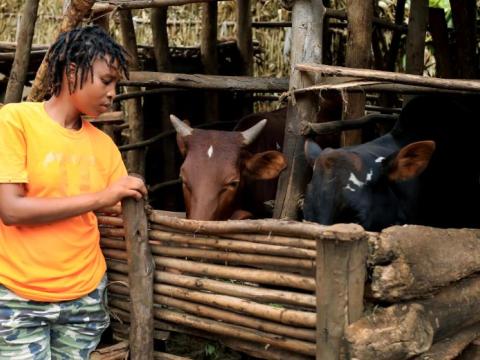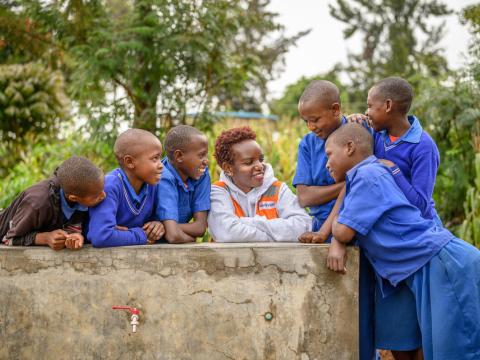
Rwanda
Recent Updates
World Vision International, Rwanda
World Vision began assisting individuals in Rwanda in 1994, following the 1994 Genocide against the Tutsi. We provided aid and support to millions forced to leave their homes. In 2000, we began our long-term development programs targeting vulnerable children and their families.
World Vision helps 1.8 million people in Rwanda through 24 programs, with 290 employees in all 30 districts. World Vision in Rwanda focuses on education, child protection, WASH, resilience, livelihoods, health, and nutrition, among other areas. World Vision Rwanda and its partners aim to improve the lives of 2 million vulnerable children by 2025.
We help children grow, learn, and thrive in a supportive environment by addressing all their needs.
World Vision supports parents, caregivers, and teachers in creating a safe and friendly learning environment for children. They do this through their Early Childhood Development (ECD) Programs and literacy campaigns. World Vision Rwanda works with the World Food Programme to help over 100 schools with Home-Grown School Feeding. This supports children's nutrition, health, and literacy.
World Vision International, Rwanda also supports the most vulnerable children and their families to break the cycle of poverty through creating sustainable livelihoods. Over the last couple of years, there was a 46.4 per cent increase in the number of parents or caregivers who can provide for their children without any external assistance.
Members accessed credit for development through the formation of more than 16,968 saving groups, which accumulated a total of $8,767,847 in assets. Communities made 9 million seedlings for trees and farmers learned sustainable agriculture techniques for climate-smart farming.
Our Impact
1.04 Million
69,000
356,773

Partnership
World Vision partners with others to help 2 million vulnerable children by 2025. This is part of their five-year plan from 2021 to 2025.
WVI, Rwanda is collaborating with various important groups to

